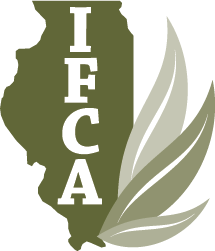Dr. Aaron Hager Address Endangered Species Act (ESA)
Ag retailers and farmers applying pest management tools should buckle their seat belt. IL Weed Specialist Aaron Hager says, “Pest management practitioners will increasingly find changes to many pesticide labels as the United States Environmental Protection Agency (EPA) begins to implement requirements mandated by the Endangered Species Act (ESA). Hager encourage all who are involved in pest management disciplines (farmers, applicators, scientists, etc.) to become more familiar with the ESA and how the EPA proposes to meet the agency’s requirements under ESA when registering or reregistering pesticides.” He quotes the Weed Science Society as saying, “The U. S. Environmental Protection Agency (EPA) is developing an updated Endangered Species Act (ESA) Workplan that addresses how the agency can protect nearly 1,700 threatened and endangered species and their critical habitats while governing the registration, distribution, sale and use of pesticides.
The Weed Science Society of America (WSSA) and its affiliates encourage growers and land managers to educate themselves immediately on the EPA’s Workplan and the changes they likely will need to make to assure compliance. To comply with the Endangered Species Act (ESA), EPA will evaluate the potential effects of pesticides on federally threatened or endangered species and their critical habitats and then recommend mitigation strategies developed in partnership with other federal agencies. Examples include requirements for vegetative filter strips, field borders and grassed waterways, terracing, contour farming, cover cropping, mulching, the adoption of no tillage or reduced tillage strategies, and the safe disposal of excess seed that has been treated with pesticides. Once finalized, such protections will become part of the formal registration review process for various geographic regions and for various groups of herbicides, insecticides and fungicides.”
